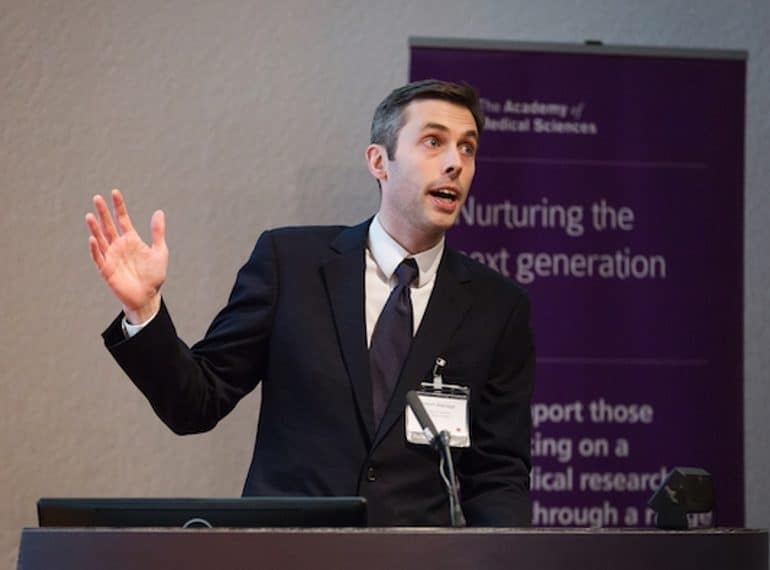
Dr Robert Aldridge has been named the winner of a national medical prize for his research into tuberculosis among vulnerable people.
In a varied career to date, Robert (OE 1988–1995) has been a management consultant in the City, a hospital doctor and is now a medical academic.
On leaving QE, he went to Nottingham, where he gained an MEng degree in Mechanical Engineering in 1999. He then spent some time in management consultancy, before a volunteering trip to India inspired him to make a career change.
“After my engineering degree, I took a year out to volunteer in India and, whilst there, I worked with several doctors in very poor areas of the country, delivering services and education to women and working children,” Robert said. “It was during this time that I realised that medicine was actually what I wanted to do.”
He returned to England to take up an existing job offer from Accenture and worked for a period in the investment banking industry, but eventually decided that he needed to follow his true vocation.
He duly went to University College London, gaining his degree in Medicine in 2007. He was then appointed a junior doctor at the Royal Free Hospital and at Barnet and Chase Farm. He subsequently trained as a Public Health doctor in Bromley Primary Care Trust, Bromley Local Authority and Public Health England. Robert is currently an Academic Clinical Lecturer at the Institute of Health Informatics, University College London, and also works in the Data Science team at Public Health England.
Research has been a key interest, and he has written numerous scientific articles in peer-reviewed publications and various policy documents for the Government, including chapters of the Chief Medical Officer’s annual report. In 2010, he gained an MSc in Epidemiology at The London School of Hygiene and Tropical Medicine.
“I’m interested in public engagement with scientific research and recently conducted a project in which I worked with schools across England to see whether schools absence data can be used to detect levels of influenza in the community,” he says.
“My current and future research focuses on infectious disease epidemiology and the health inequalities faced by vulnerable, and often invisible populations such as homeless, migrants, prisoners and intravenous drug users.”
He won the national prize – the 2016 Lancet Young Investigator award – after presenting work from his PhD on Screening of tuberculosis in migrants before entry to the UK: a population-based cohort study. The award, which he won jointly with Dr Vanessa Wong of the Cambridge Wellcome Trust Sanger Institute, included a £2,500 prize and the opportunity to write an editorial for The Lancet on the wider implications of his research. Robert describes the award as a “great honour”.
“Most of my spare time is spent with my two-year-old daughter, Hazel, who keeps me grounded,” he concludes.
